One classroom at a time
Theology teacher aims to begin inclusive education program to integrate students with special needs
Anna Kawolski is one of the many children that could benefit from One Classroom’s mission of inclusive education.
Anna Kowalski loves to sing, dance and cook. She would give the world to be able to wear a princess dress to school, and her parents, Bill and Sarah, would do the same to make sure that school is Catholic. But because Anna has down syndrome, that is easier said than done.
The One Classroom program may be the Kowalski’s beacon of hope for a Catholic education. Whether the program itself has a future at Catholic high schools is still to be determined, but theology teacher Kevin Poelker is hoping to begin making dreams into realities for families like the Kowalski’s, starting with De Smet.
“For a lot of these families, there’s no place to go,” Poelker said. “Especially at a school [like De Smet] that is for and with others, I think that’s a need we should be trying to meet.”

Bill and Sarah Kawloski, along with their children Joseph and Anna.
But at one point, the only dream that the Kowalski’s had was to have a sister for their son, Joseph. So, for five grueling years, Bill went with his wife Sarah, who suffered from infertility, to an In Vitro Fertilization specialist to make that possible. For five grueling years, time after time, they cried in that specialist’s office after their eggs didn’t take.
But after five grueling years, one finally did.
“It was like a miracle,” Bill Kowalski said. “After all that time, just after all hope seemed lost, we were floating on cloud nine.”
12 weeks later, however, the Kowalski’s went in for their ultrasound, where they were told that their miracle would have down syndrome. And just like that, they were knocked from cloud nine to rock bottom.
“I was afraid that I wouldn’t love my own child,” Kowalski said. “Then I met her. When she was born, just looking down on her, all I saw was this beautiful baby; my baby. That was it.”
What Kowalski wanted most for his little princess still seemed far from reach; that is: a Catholic education.
“I came to feel like my child would be a burden to the Catholic system,” Kowalski said, “but giving that education to her was so important to me. I would much rather have a Catholic education than a perfect education. The Catholic part of it can’t be replaced.”
When the time for school came around for Anna, the Kowalski’s dream was just that, a dream. So, instead of going to school at her family’s parish as they had hoped, Anna attended Henry Elementary School.
It was not until later that the Kowalski’s encountered what would be their knight in shining armor, at least for grade school. An email from Tony and LeAnne Armitage told them about One Classroom, a non-profit organization that helps Catholic schools welcome children with special needs and develop an institutional capability for them.
The Armitages co-founded the organization with Fred Brown Sr. They have mainly targeted grade schools. High schools in St.Louis, however, have yet to enter the picture as options for boys and girls like Anna.
“According to our Catechism, parents are responsible for choosing the educational pathway for their children,” Armitage said, “and it’s the responsibility of the pastors, teachers and institutions to make that possible.”
The Armitage’s son, Christopher, also suffers from down syndrome. He had help from special programs early on, but, like the Kowalski’s, the Armitage’s wanted the best for their child. So, when they discovered inclusive learning classrooms around the country, they set out to fill a void and bring the model to St. Louis.
“Initially I could not imagine how my son could be successful in that kind of environment, until I began to understand how inclusion works and what the goal really is for my son.”
That goal is not to meet some arbitrary standard, rather to maximize special needs students’ potential. Inclusive education benefits both the student with special needs and the normally developing student, regardless of whether they are a boy or girl; in grade school or high school.
A 2012 study by Hehir and colleagues cited that students with disabilities who spent a larger proportion of their school day with their non-disabled peers performed significantly better on measures of language and mathematics than students with similar disabilities who spent a smaller proportion of their school day with their non-disabled peers.
“In segregated environments, the only model they have to follow is that of other students with special needs,” Armitage said. “If you put them in a typically developing environment, though, they will model children that are typically developing. That’s the way that I would want for my son.”
Special needs students are not the only ones who stand to benefit from inclusive education. In 2007, researchers from the University of Manchester analyzed a variety of studies on inclusive education from several different regions, including the United States, Canada, Ireland and Australia. Eighty one percent of those studies indicated that nondisabled students either experienced no effects (58 percent of studies) or experienced positive effects (23 percent of studies) on their academic development as a result of being educated alongside students with disabilities.
“In that environment, [nondisabled] students will begin to develop genuine relationships and collaboration skills with their peers,” Armitage said. “In addition to that, teachers will become more adaptable and ultimately better at meeting all of the students’ needs.”
Thanks to One Classroom, the Kowalski’s will finally get their wish. Anna will attend Incarnate Word next year along with two other special needs children.
“If I could ask one thing in this world, this is it,” Kowalski said. “It means that much to me. When I see her wearing that skirt come August, I’m going to be a mess.”
Anna represents the larger demographic of children that could benefit from inclusive education. According to theinclusivechurch.com, one in 691 children are born with down syndrome, while one in 31 boys are diagnosed with Autism. Those are two of the many types of children with disabilities who the One Classroom program aids.

And those are the type of students that Poelker is hoping to start a conversation about.
“Knowing that [De Smet] is trying to bring up issues of diversity and sexuality, I think we are becoming more cognisant of the language we use and the atmosphere we build,” Poelker said. “This could become another component of having a broader notion of inclusion.”
The idea is on a distant horizon. Poelker hopes that Incarnate Word, which is also his parish and is about to begin its first year with One Classroom, will set a precedent.
“For a lot of these families like the Kowalski’s, it took a lot of time and energy to get to this point,” Poelker said. “The hope is that they can turn into advocates to speak to how effective the program can be.”
Poelker plans to collaborate with One Classroom to bring inclusive education to the school. In doing so, he will help the program pave a path for special needs students to continue their Catholic education at the high school level.
“With programs like these in our schools, we will be able to get a greater understanding of and relationship to all members of our communities,” Poelker said. “Hopefully, in doing that, we can give Anna, and all boys and girls like her a happily ever after.”



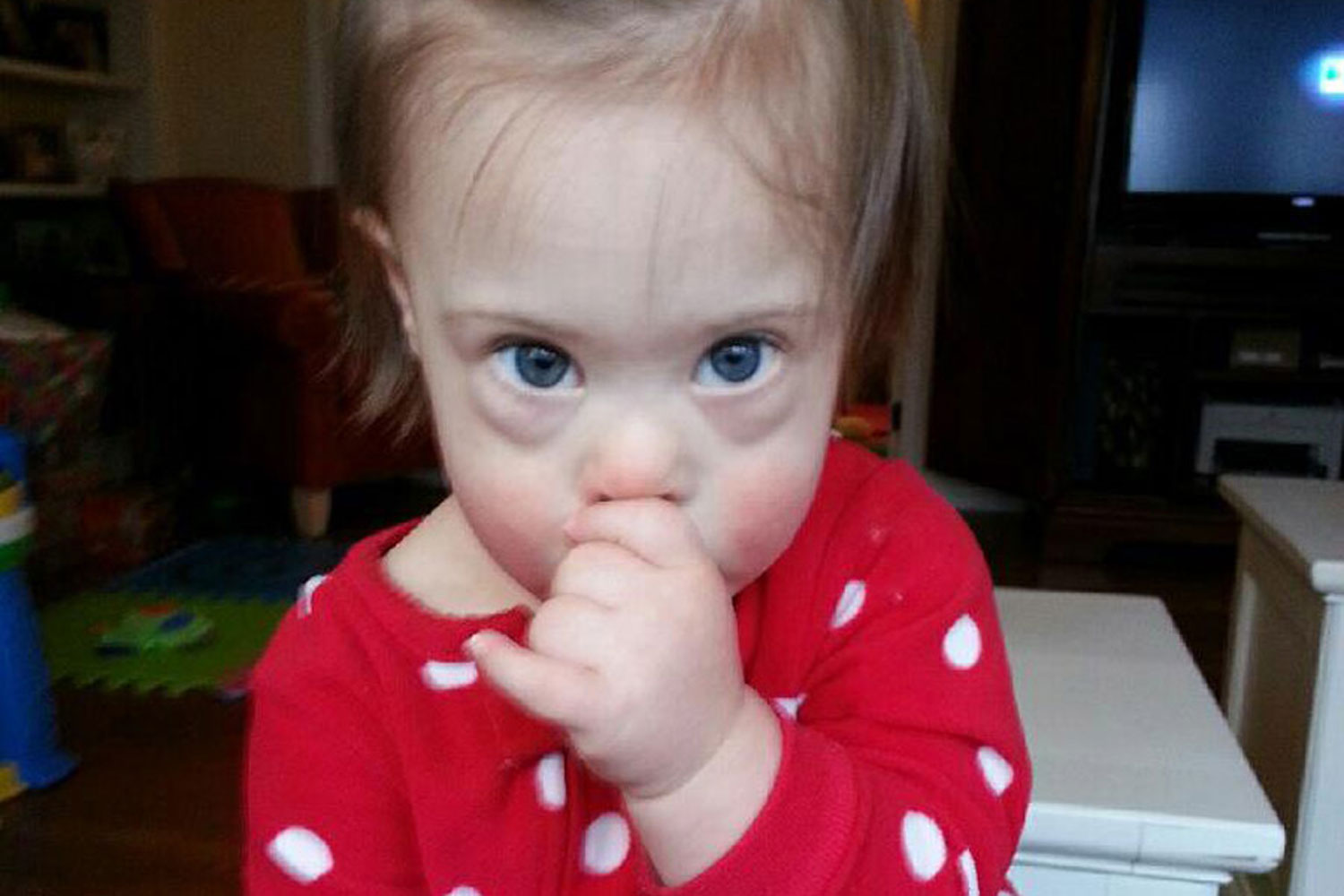

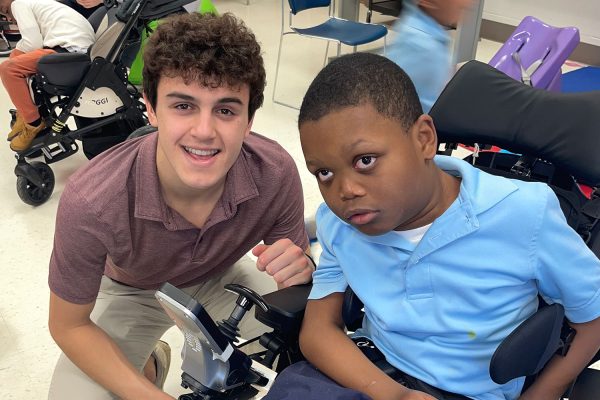
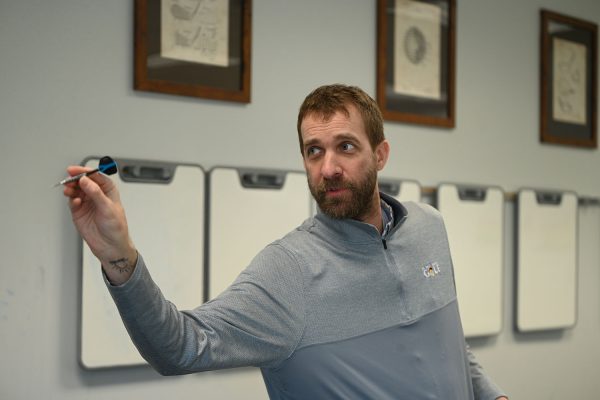

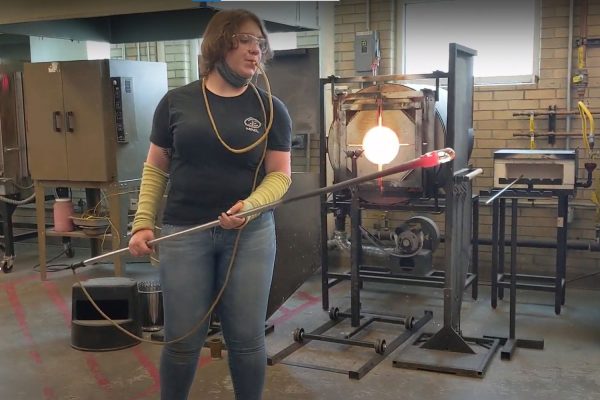
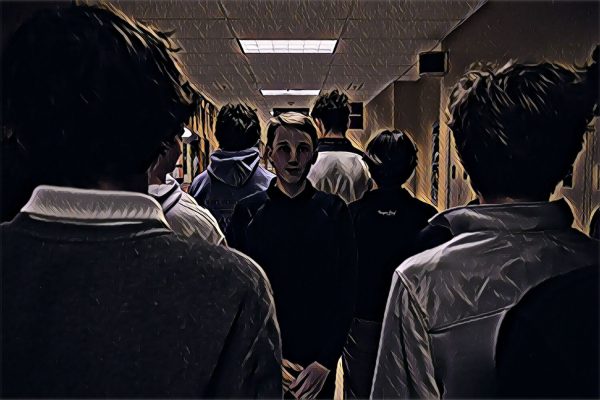






John Hartweger • Jul 5, 2017 at 9:41 pm
This is awesome!
When my son John was born with Down Syndrome 11 years ago one of my first thoughts is that he would never go to school with hos siblings…never go to the high school that I went to…DeSmet.
It is so incredible to see the change in mindset over the last decade and to think that one day soon children like my son could (and should) be walking the halls of DeSmet to the benefit of all in that school.
Thanks Kevin for pushing the limits and not accepting the status quo.
Jenn martin • Apr 29, 2017 at 8:35 am
We are blessed to have this opportunity to work with Anna. Looking forward to it. Kdg. Assistant
William Kowalski • Apr 29, 2017 at 1:37 am
Thanks Brendan for your hard work on the story. It’s outstanding and our family thanks you.